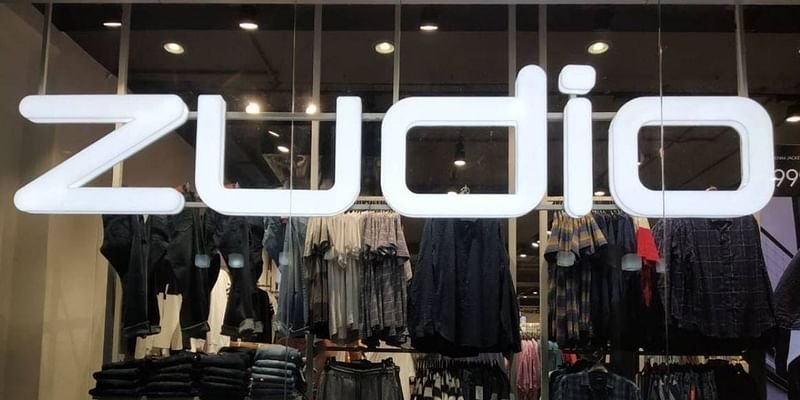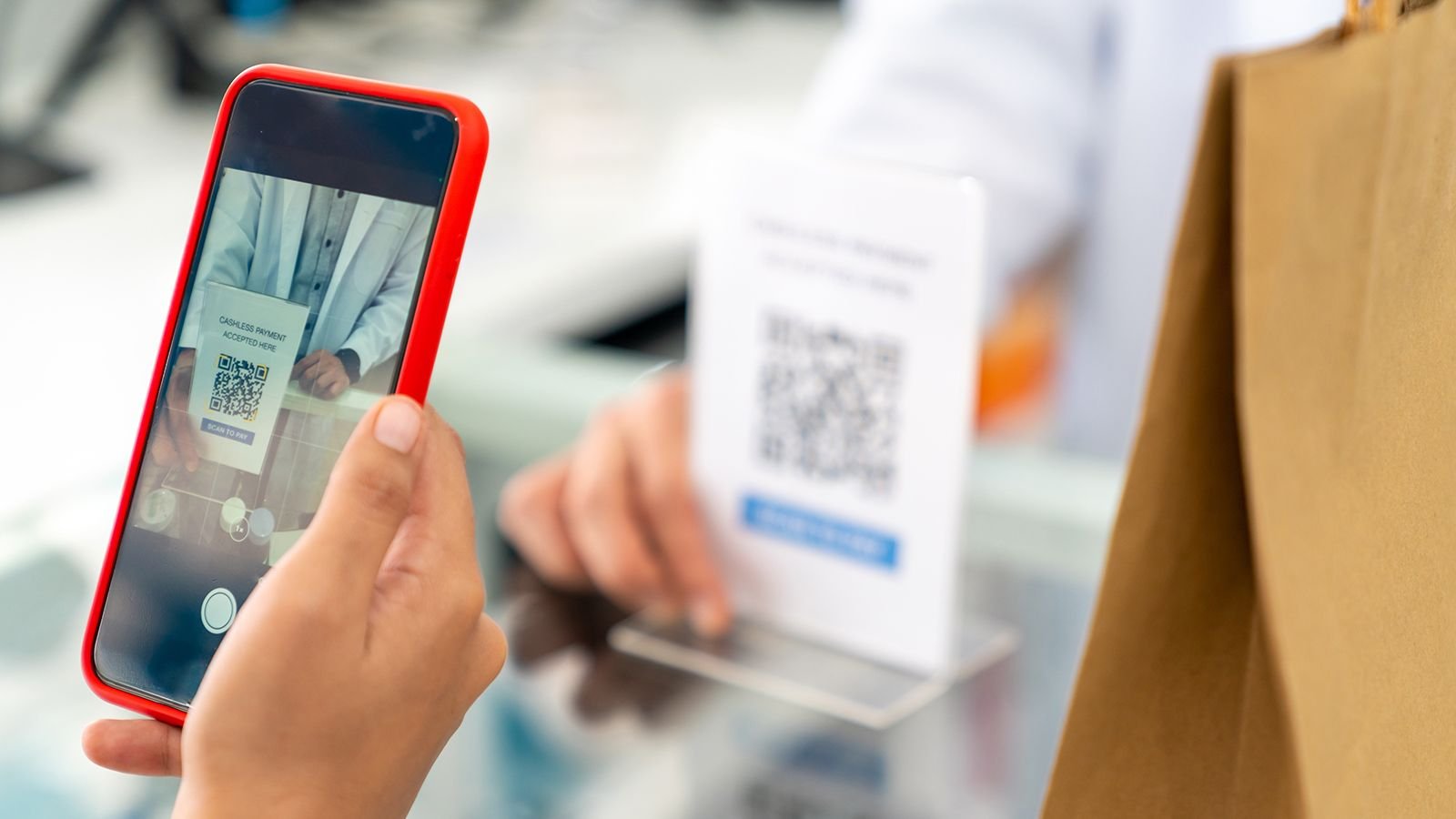Startup
What’s popular during festive season sales; What IPO valuation means to Swiggy

Hello,
Happy Diwali!
There’s nothing like receiving a gift from your employer on Diwali. India Inc has reportedly upped the gifting budgets, and corporates are tying up with online portals to curate customised gifts for employees.
However, not all companies are the same.
ICYMI: Here’s the significance behind the special one-hour Diwali Muhurat trading.
Meanwhile, startups are celebrating after earnings jumped from previous years.
Tiger Global-backed digital lender MoneyView‘s revenue rose sharply 75% YoY to Rs 1,012 crore. Also, fintech Credgenics turned profitable with its parent boosting revenue by 72% YoY, boosted by increasing adoption of digital debt collection and resolution tools across the financial sector.
EV enabler BatterySmart too nearly tripled its revenue to Rs 164.6 crore from Rs 56 crore a year earlier. However, its losses also more than doubled, bogged down by a rise in battery swapping and support costs and employee benefit expenses.
Moving on, while the stock market is still weathering the exit of FPOs, a relatively unknown stock has gained the title of the most expensive stock.
With a value of Rs 2,36,250 per share, Elcid Investments has dethroned MRF to become the most expensive stock. However, just a few months ago, on June 21, it was trading at just Rs 3.53 per share.
Now that’s a meteoric rise.
In today’s newsletter, we will talk about
- Inside festive season sales trends
- What IPO valuation means to Swiggy
- Meesho on the verge of profitability
Here’s your trivia for today: How many days does Diwali last?
In-depth
Inside festive season sales trends
The first wave of the festive season sales kicked off in the last week of September, with major ecommerce platforms unveiling flashy discounts and offers. Traditionally, sales before Navratri are muted, however, the trend seems to be slowly shifting.
“While previously sales started with the commencement of Navratri festivities, the trend has shifted towards launching sales a few days earlier, with sales then continuing through the festive season till Diwali and beyond,” Unicommerce said in a statement to YourStory.
Ecommerce sales:
- Walmart-owned Flipkart managed to clock 33 crore user visits during early access and day 1 of its Big Billion Days festive sale. It noticed a growing demand for mobile phones, electronics, large appliances, fashion and beauty products.
- During the first set of sales, fashion emerged as the top category, driven by ethnic wear. Daily wear jewellery and kids’ fashion witnessed notable growth, particularly helped by traction from Tier II cities, according to strategy consulting firm Redseer.
- Industry watchers expect festive sales in the offline markets to shift towards quick commerce platforms in the near future. “Customers have much bigger confidence in getting their grocery needs serviced quickly while being at home,” notes Bank of America.

Foodtech
What IPO valuation means to Swiggy
In a press conference, Swiggy leadership said the valuation for its upcoming IPO is derived from a comprehensive institutional roadshow and a deep focus on “strategic moats”. Rohit Kapoor, CEO of Swiggy Food Marketplace, elaborated that the IPO pricing is meant to be “attractive” to encourage robust participation from investors.
The company’s strategic moat is built on its diverse service offerings, high customer engagement, and strong user retention, he noted.
Up and up:
- Swiggy disclosed that its food delivery business achieved a positive adjusted EBITDA of 0.8% in Q1 FY25, while its quick commerce segment has shown significant improvement in contribution margins, moving from -23% in FY23 to -3% in Q1 FY25.
- Swiggy expects Instamart to soon outpace its core food delivery business. Quick commerce has reached 40% of Swiggy’s food delivery business in terms of gross order volumes.
- With the IPO, some of its early investors like Accel and Elevation Capital will see over 3,300% gain on their investments as they will be selling part of their share in the issue. Norwest Venture Partners may see a gain of 2,531% in the IPO and receive Rs 250 crore.

Earnings
Meesho cuts losses by 97%
Bengaluru-based ecommerce platform Meesho has reported a 33% growth in revenue from its operations for the fiscal year 2023-24, reaching Rs 7,615 crore compared with Rs 5,735 crore in the previous year. It narrowed its adjusted losses by 97% to Rs 53 crore in FY24 from Rs 1,569 crore in the previous fiscal.
Key takeaways:
- Driven by a 36% surge in order volume, the company saw its high demand in categories like home and kitchen, beauty and personal care, and baby essentials.
- The firm attributed the improvement in losses to organic growth and operational efficiencies, particularly in logistics, bolstered by its own logistics arm, Valmo Logistics.
- Meesho completed its largest ESOP buyback programme worth Rs 200 crore ($25 million) in March.

News & updates
- Ad boost: Shares of online ad sellers surged on Wednesday as strong earnings from Google parent Alphabet, Reddit and Snap signalled solid spending from brands ahead of the crucial holiday season. The three companies were set to add around $140 billion combined to their market caps.
- New king: Chinese electric vehicle manufacturer BYD overtook Tesla in quarterly revenue for the first time as an electric vehicle maker. In the third quarter of 2024, BYD posted revenue of 201.1 billion yuan ($28.24 billion), marking a 24% year-on-year growth.
- Above water: Reddit just turned a profit for the first time. As part of its third-quarter earnings results, the company reported a profit of $29.9 million, along with $348.4 million in revenue—a 68% increase year over year.
How many days does Diwali last?
Answer: Five. The festival begins two days before the new moon on Dhanteras and ends on Bhai Dooj.
We would love to hear from you! To let us know what you liked and disliked about our newsletter, please mail [email protected].
If you don’t already get this newsletter in your inbox, sign up here. For past editions of the YourStory Buzz, you can check our Daily Capsule page here.
Startup
Trent Q2 profit grows 47% to Rs 335 Cr; sales jumps 39.3%

Tata Group retail firm Trent on Thursday reported a 46.9% growth in its consolidated net profit to Rs 335.06 crore for the second quarter ended September 2024.
The company had posted a consolidated net profit of Rs 228.06 crore a year ago, according to a regulatory filing from Trent, which operates retail stores under brands like Westside, Zudio, and Star.
Its consolidated revenue from operations increased 39.37% to Rs 4,156.67 crore during the quarter under review. It was Rs 2,982.42 crore in the year-ago period, it added.
Trent’s total expenses rose 48.49% to Rs 3,743.61 crore in the September quarter.
As of September 30, Trent was operating 226 Westside, 577 Zudio and 28 stores across other lifestyle concepts, the company said in an earning statement.
“During the quarter, we opened 7 Westside and 34 Zudio stores (including 1 in Dubai) across 27 cities. We also consolidated 9 Westside and 16 Zudio stores,” it added.
Its Chairman Noel N Tata said: “Consumer sentiment has remained relatively muted. This coupled with seasonality has meant that retail businesses have faced headwinds. In the foregoing context, the team has delivered strong results across brands, concepts, categories and channels in Q2”.
Shares of Trent Ltd on Thursday settled at Rs 6,498.45 on BSE, down 6.54% from the previous close.
Startup
India’s QR soundbox boom: how merchant acquirers can ride the offline payment wave

“UPI account par 18 rupay prapt hue” or “Rs 18 has been deposited to your UPI account.” Just when it seemed like India’s digital payments journey had reached its peak, QR codes paired with soundboxes emerged, showing us that we have only begun.
The familiar chime of these soundboxes now unites millions of UPI users across the country. Together, soundboxes and QR codes offer seamless, real-time payment confirmations, which makes them indispensable resources for merchants.
Why QR-based soundboxes work in India
The adoption of QR codes is rapidly expanding over conventional Point of Sale (PoS) devices, not only in Tier I cities, but also in Tier II, Tier III, and rural areas. In fact, QR code deployment increased by 34% in FY24 to over 350 million. PWC attributes the shift to factors such as high rental costs, MDR (merchant discount rates), and the operational complexity of maintaining PoS machines.
The low cost of QR payment acceptance has also compounded challenges. Merchants may use QR codes from different providers. For merchant acquirers, this translates into higher incidence of churn and an escalation in the overall cost of acquisition, as they invest in both technology and on-the-ground sales efforts.
Hence, QR paired with soundboxes present an opportunity to strengthen merchant loyalty in offline acquisition. Instead of standalone QRs, merchants increasingly prefer QR paired with Soundboxes, as instant and reliable payment confirmations are essential — particularly for those with high foot traffic. Consider a busy sweets shop in Delhi during the holiday season. Now, sellers don’t have to wait for confirmations of UPI payments, which might lead to delays. These devices simplify the process for both customers and merchants by providing real-time, audible payment confirmation. Additionally, it also provides an additional level of security by diminishing the possibility of non-payments and fraud at checkout.
The game changer in offline merchant acquisition
According to a recent Cognitive Market Research report, India’s merchant acquiring market reached $611.21 million in 2024 and projected to grow at a CAGR of 12% between 2024-2031, driven by regulatory support. Another report by Kearney highlights that retail digital payments is expected to double, from $3.6 trillion in FY24 to $7 trillion by FY30.
As this growth unfolds, the challenge for acquirers—both banks and merchant aggregators — will be how they capture this opportunity. Given the operationally intensive nature of the business scaling profitably is far from simple. For example, if an acquirer wants to offer Soundboxes to its merchants, they need a reliable device vendor, manage inventory, across remote merchant locations nationwide, partner with logistics providers for shipment, test every dispatched unit, and establish merchant support operations. Setting up this infrastructure could delay their go-to-market, increasing the risk of losing merchant-led businesses to competitors. The traditional ‘do-it- yourself’ model, where acquirers handle everything from merchant acquisition to backend operations, is increasingly unsustainable and non-core to a merchant acquirer’s business.
Offline Payments as a Service (PaaS) simplify payment operations for acquirers by handling the entire merchant and transaction lifecycle. This includes onboarding, device management, and transaction processing. By integrating business and tech operations with advanced payment software, PaaS solutions allow acquirers to focus on strategic growth rather than operational complexities.
Through a managed services model, acquirers can significantly reduce merchant acquisition costs by digitizing the onboarding process and streamlining due diligence. They also handle device logistics, including shipping, inventory, and support. For example, a merchant in a remote rural area needing assistance with a device like SoundBox receives instant support through the managed services provider, who ensures resolution within contracted service levels, supporting uninterrupted business for the merchant.
Additionally, a dedicated UPI Switch for merchant transactions can help acquirers process transaction volumes. A dedicated switch can reduce load on the UPI switch, ensuring smooth, efficient management of growing transaction volumes and delivering a seamless payment experience. PaaS also provides value added services such as recon /dispute and complaints management, helping acquires to promote stickiness among merchants.
Scan and pay
P2M (person-to-merchant) payments, which comprise 60% of UPI transactions, offer a substantial opportunity for expansion, particularly in non-metropolitan regions. This potential is aligned with the government’s and RBI’s commitment to promoting financial inclusion.
From your neighbourhood vegetable vendor to the supermarket in your locality, we are seeing or rather hearing soundboxes buzzing everywhere. It’s an example of how offline merchants are keen to embrace digital solutions that simplify their transaction processes. The combination of QR codes and soundbox technology has emerged as a standout innovation in this space and PwC’s projects that 54 million such devices will be deployed by FY29.
As a new operating model, PaaS will help acquirers drive their go-to-market strategies and strengthening their market presence while reducing capital expenditure significantly. By streamlining operations and offering scalable solutions, PaaS not only supports business growth but also fosters a more inclusive financial ecosystem that benefits all stakeholders.
(Deepak Chand Thakur is the CEO & Co-founder of NPST)
(Disclaimer: The views and opinions expressed in this article are those of the author and do not necessarily reflect the views of YourStory.)
Startup
Prabhuji snack maker Haldiram Bhujiawala raises Rs 235 Cr

Kolkata-based packaged snack company Haldiram Bhujiawala has raised Rs 235 crore through a private placement from Pantomath’s Bharat Value Fund (BVF) for a minority stake.
The snacks maker, which retails under the ‘Prabhuji’ brand, registered a revenue of Rs 473 crore for FY23 while profits declined to Rs 1.7 crore for the year, according to data sourced from research platform Tracxn.
The company was established in 1992 by Manish Agarwal and Prabhu Shankar Agarwal and retails Haldiram’s Prabhuji and internet-first brand, . It has a portfolio of over 100 SKUs, with strong recognition in the Eastern and North Eastern markets. It also operates quick service restaurants in West Bengal and other North Eastern states.
“In the last 60+ years, we have cultivated a loyal customer base by offering delectable snacks and sweets. Our company has been a trendsetter, revolutionizing food habits and tastes of India,” said Manish Agarwal, Managing Director of Haldiram Bhujiawala in a statement.
He added, “Leveraging our industry insights alongside BVF’s support, we are strategically positioned to enhance shareholder value and drive growth. This partnership lays a solid foundation for generating long-term economic benefits, ensuring a prosperous future for all stakeholders.”
The snack maker competes in a market dominated by larger players like Nagpur-based Haldiram, Annapurna Snacks, and others. Haldiram Bhujiawala claims to have a distribution network of approximately 2000 distributors servicing over two lakh retailers across West Bengal, Bihar, Jharkhand, and North East India. It also operates 19 retail outlets and 60 franchise stores.
The snacks market is estimated to be a Rs 42,600 crore market by FY24, with a CAGR (Compound Annual Growth Rate) of 11%, dominated by packaged snack makers, according to data shared in the statement.
“We are pleased to partner with Haldiram Bhujiawala Limited. With over six decades of market insight since its founding as a proprietorship in 1958, the company has a deep understanding of consumer behaviour and market trends,” said Madhu Lunawat, CIO of BHarat Value Fund.
He added, “The new generation’s sharp focus on the modern brand, ‘Prabhuji,’ is particularly noteworthy. We are highly optimistic about the food, FMCG, and consumer goods sectors, and Haldiram is well-positioned to achieve substantial growth in the years ahead.”
This marks BVF’s sixth overall investment in the mid-market segment, backing profitable growth companies. It had also recently backed Millenium Babycares, maker of the flagship brand Bumtum.
-

 Startup Stories1 year ago
Startup Stories1 year agoWhy Millennials, GenZs Are Riding The Investment Tech Wave In India
-

 Startup Stories1 year ago
Startup Stories1 year agoStartups That Caught Our Eyes In September 2023
-

 Startup Stories1 year ago
Startup Stories1 year agoHow Raaho Is Using Tech To Transform India’s Fragmented Commercial Trucking
-

 Startup Stories1 year ago
Startup Stories1 year agoMeet The 10 Indian Startup Gems In The Indian Jewellery Industry’s Crown
-

 Crptocurrency8 months ago
Crptocurrency8 months agoLither is Making Crypto Safe, Fun, and Profitable for Everyone!
-

 Startup Stories1 year ago
Startup Stories1 year agoHow Volt Money Is Unlocking The Value Of Mutual Funds With Secured Lending
-

 Startup Stories1 year ago
Startup Stories1 year agoWhy Moscow-Based Kladana Considers Indian SME Sector As The Next Big Market For Cloud Computing
-

 E-commerce1 year ago
E-commerce1 year agoTop Online Couponing Trends To Watch Out For In 2016




